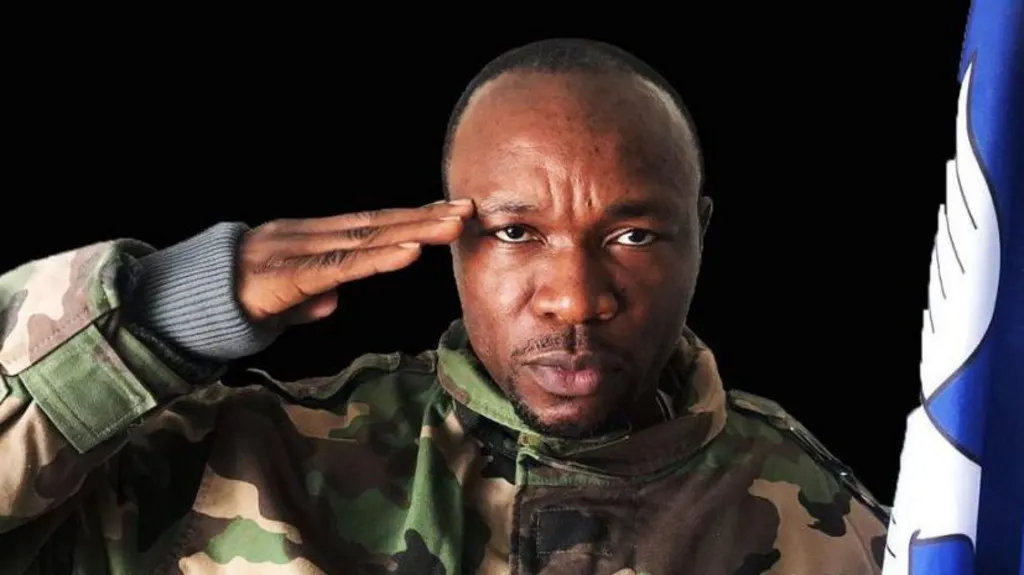Cameroonian separatist leader arrested in Norway
3 min read
Lucas Ayaba Cho plays a central role in the ongoing armed conflict in Cameroon, Norwegian police say.

Lucas Ayaba Cho plays a central role in the ongoing armed conflict in Cameroon, Norwegian police say.
A prominent Cameroonian separatist leader, Lucas Ayaba Cho, has been arrested in Norway, where he is accused of involvement in the protracted armed conflict in Cameroon. His detention occurred on Tuesday and was reportedly based on “charges related to his various expressions on social media,” according to his lawyer speaking to the BBC.
Cho is a significant figure in the Anglophone separatist movement, which seeks independence from Cameroon. The conflict has resulted in over 6,000 deaths and displaced nearly one million people since hostilities began in 2016. Many individuals in the English-speaking regions of Cameroon assert that they face systemic discrimination from the French-speaking majority. Human rights organization Amnesty International has documented severe human rights violations committed by both government forces and separatist groups, including killings, sexual violence, and torture of civilians.
Profile of Lucas Ayaba Cho
Lucas Ayaba Cho, who refers to himself as a “liberation leader,” plays a central role in the separatist movement advocating for the independence of the Anglophone regions. At 52 years old, he is identified as the Commander-in-Chief of the Ambazonian Defence Forces (ADF), one of the main armed factions fighting for this cause.
Cho conducts his operations from Norway, where he is said to have orchestrated a recent two-week lockdown aimed at enforcing a boycott of schools as part of the separatist agenda. Known for his hardline stance, Cho has faced backlash for ADF fighters’ recent actions targeting taxi drivers in the North-West region, demanding they repaint their vehicles in the colors of the proposed independent state of Ambazonia. Those who resisted these orders reportedly had their vehicles destroyed.
The ADF’s political branch, the Ambazonia Governing Council, has also instituted a “liberation tax” that forces residents in the Anglophone regions to contribute financially to the separatist campaign against the government.
In January 2017, Cho survived an assassination attempt following a meeting with other separatist leaders in Belgium, highlighting the risks and tensions surrounding leadership in the conflict. His history of anti-establishment activism dates back to the 1990s, when he was expelled from the University of Buea for participating in protests against rising tuition fees.
Norwegian authorities, specifically the National Criminal Investigation Service (KRIPOS), stated that Cho “played a central role in an ongoing armed conflict in Cameroon.” Following his arrest, investigators sought his custody from the Oslo District Court, with Norwegian prosecutor Anette Berger noting that the investigation is still in its early stages and several steps remain to be completed.
Emmanuel Nsahlai, a lawyer based in the U.S. who represents victims of the Anglophone crisis, commended Cho’s arrest as a “significant victory” against the violence perpetrated by separatist groups in Cameroon. “This arrest marks a critical step in holding him accountable for his actions and bringing justice to the victims of his violence,” Nsahlai remarked.
Cho is not the first separatist leader to be detained abroad in connection with the violence in Cameroon. The Cameroonian government has consistently urged other nations harboring separatist leaders to facilitate their extradition for trial regarding their involvement in the ongoing turmoil.
In 2018, Julius Sisiku Ayuk Tabe, the leader of the Anglophone separatist movement, along with 46 others, was arrested in Nigeria and subsequently extradited to Cameroon. These developments reflect the broader complexities of the conflict and the international dimensions of the separatist struggle in Cameroon. As the situation evolves, Cho’s arrest may have significant implications for the separatist movement and the ongoing efforts to address the crisis in the region.